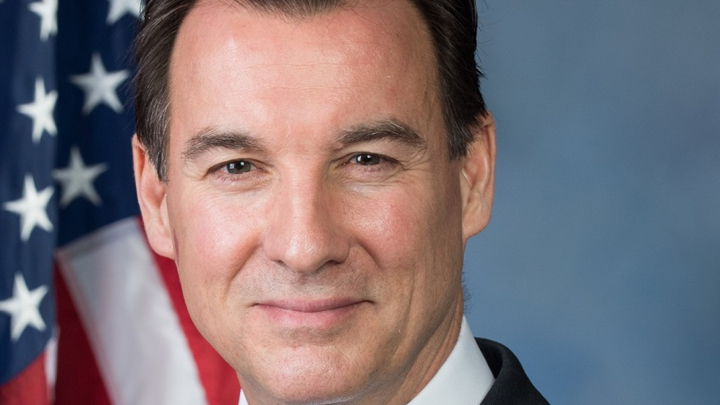

“Given the stakes for the country, from urgent climate and social spending needs to the future of democracy, Americans badly need a rolling conversation today and in the coming weeks and months about how moderate voters of all affiliations can coalesce behind and guide the only party right now that shows an interest in governing and preserving democratic norms.”
Tuesday was not just about Republicans reclaiming electoral ground from Democrats. Even in many blue enclaves, voters showed an interest in moving toward the center.
Tuesday’s election result trend lines were a political nightmare for the Democratic Party, and no Democrat who cares about winning elections in 2022 and the presidential race in 2024 should see them as anything less.
Familiar takeaways like “wake-up call” and “warning shot” don’t do justice here because the danger of ignoring those trends is too great. What would do justice, and what is badly needed, is an honest conversation in the Democratic Party about how to return to the moderate policies and values that fueled the blue-wave victories in 2018 and won Joe Biden the presidency in 2020.
Given the stakes for the country, from urgent climate and social spending needs to the future of democracy, Americans badly need a rolling conversation today and in the coming weeks and months about how moderate voters of all affiliations can coalesce behind and guide the only party right now that shows an interest in governing and preserving democratic norms.
The results in Virginia are a grave marker of political peril. Virginia is a blue state; it hasn’t been a battleground in years. Mr. Biden won there in 2020 by 10 points; a year later, the Democratic nominee for governor just lost by 2.5 percentage points, and Republicans flipped two other statewide offices — lieutenant governor and attorney general — that they have not won in 12 years.
Virginia is a cross-section of suburbs, education levels and racial diversity that is a mirror of what a winning, coalition-driven Democratic party should be. Democrats lost there — even with a longtime moderate as their candidate for governor — because the party has become distracted from crucial issues like the economy, inflation, ending the coronavirus pandemic and restoring normalcy in schools and isn’t offering moderate, unifying solutions to them. Republicans now have a playbook for future elections, based on ways their nominee for governor, Glenn Youngkin, overperformed with independents and cut into Democrats’ support in the suburbs and among women. In true-blue New Jersey, Gov. Phil Murphy barely held onto his seat, while the powerful State Senate leader, Steve Sweeney, lost to a Republican truck driver whose campaign worked with a shoestring budget. Republicans flipped a House seat in a traditionally Democratic area of San Antonio. In Seattle, voters appear to have chosen a Republican for city attorney over a police abolitionist running on the Democratic line.
Bill Clinton’s mantra from 1992 of “it’s the economy, stupid” is rarely out of vogue, and it certainly isn’t now. But Democrats, looking left on so many priorities and so much messaging, have lost sight of what can unite the largest number of Americans. A national Democratic Party that talks up progressive policies at the expense of bipartisan ideas, and that dwells on Donald Trump at the expense of forward-looking ideas, is at risk of becoming a marginal Democratic Party appealing only to the left.
Broader trends were also working against the Democrats. Perhaps chief among these: When voters are feeling surly and unhappy about the direction of the country — as polls show that a majority of them are — they tend to blame the party in power. President Biden’s poll numbers have been on the slide for months, for a blend of reasons ranging from the ugly withdrawal from Afghanistan to the seemingly endless burdens of the pandemic. In an era of nationalized elections, that exerts a drag on his entire party. Many in the president’s party point to Tuesday as proof that congressional Democrats need to stop their left-center squabbling and clock some legislative wins ASAP by passing both the bipartisan infrastructure bill and a robust version of the Build Back Better plan, the larger social spending and environmental proposal. They believe this will give their candidates concrete achievements to run on next year and help re-energize their base.
But Tuesday’s results are a sign that significant parts of the electorate are feeling leery of a sharp leftward push in the party, including on priorities like Build Back Better, which have some strong provisions and some discretionary ones driving up the price tag. The concerns of more centrist Americans about a rush to spend taxpayer money, a rush to grow the government, should not be dismissed.
Tuesday was not just about Republicans reclaiming electoral ground from Democrats. Even in many blue enclaves, voters showed an interest in moving toward the center. In Buffalo, N.Y., the democratic socialist who bested the current mayor, Byron Brown, in the Democratic primary appears to be losing to Mr. Brown’s write-in campaign. In Minneapolis, a referendum to replace the police department with a Department of Public Safety went down in flames. In the New York mayoral race, voters went with Eric Adams, a moderate Democrat who ran with a focus on law and order. “Progressives on the ropes?” asked The Seattle Times, in a postelection piece noting that “the more moderate, business-backed candidates in the city’s three most watched races surged to huge and likely insurmountable leads.”
Progressives notched some notable wins for mayor in Boston, Cleveland and Pittsburgh. But progressive wins in deep-blue cities aren’t evidence of broad, national support. Many Americans, across party lines, are concerned about crime and border security and inflation. The high price of gas is causing particular pain. More than 60 percent of voters hold the Biden administration responsible for inflation. Polls show that many independents already think that the government is trying to do too much to deal with the nation’s problems.
For many voters — especially those who don’t vote regularly — the 2020 election was about removing Mr. Trump from the White House. It was less about policy or ideology. Mr. Biden did not win the Democratic primary because he promised a progressive revolution. There were plenty of other candidates doing that. He captured the nomination — and the presidency — because he promised an exhausted nation a return to sanity, decency and competence. “Nobody elected him to be F.D.R.,” Representative Abigail Spanberger, a moderate Democrat from Virginia, told the Times after Tuesday’s drubbing. “They elected him to be normal and stop the chaos.”
Democrats should work to implement policies to help the American people. Congress should focus on what is possible, not what would be possible if Joe Manchin, Kyrsten Sinema and — frankly — a host of lesser-known Democratic moderates who haven’t had to vote on policies they might oppose were not in office.
Democrats agree about far more than they disagree about. But it doesn’t look that way to voters after months and months of intraparty squabbling. Time to focus on — and pass — policies with broad support. Or risk getting run out of office.
(First published in New York Times)
(Tom Suozzi represents New York’s 3rd Congressional District)




Be the first to comment